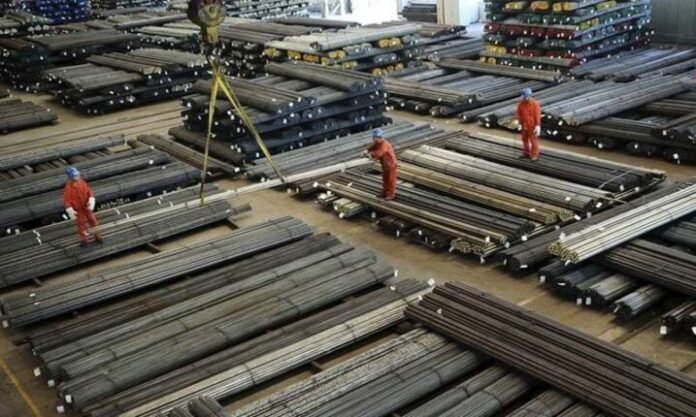Islamabad — The National Tariff Commission (NTC) has recommended reducing duties on basic iron and steel raw materials to zero in a bid to ensure steady input supply, lower production costs, and support downstream industries.
In a report to the Economic Coordination Committee (ECC), the NTC suggested maintaining tariffs between 11% and 20% for finished products such as re-bars, wire rods, and alloy bars, but phasing down regulatory duties to 10% over the next three years. It also proposed scrapping the 2–6% additional customs duty on these products.
The commission noted that high tariff protection for billets and bars, combined with steep energy and financing costs and slower economic growth, has driven up steel prices, hampering construction, manufacturing, and infrastructure projects. To address this, it recommended that iron ore, scrap, direct reduced iron (DRI), and heavy melting scrap (HMS) — the core raw materials — be exempted from import duty. Re-rollable scrap and billets/ingots should also have a similar tariff structure, it added.
For flat steel products such as cold-rolled coils (CRC), galvanised, and colour-coated sheets, where tariff levels are already low, no changes were proposed. However, hot-rolled coils not produced domestically should face zero duty to support cost-effective access for downstream industries.
The Ministry of Commerce told the ECC that the report followed earlier directives to analyse the steel sector’s tariff structure and competitiveness. Findings highlighted underutilised production capacity, rising imports, and tariff distortions, with long steel capacity increasing from 7 million metric tons in FY23 to 8 million in FY25, but production fluctuating sharply.
While high protection rates — up to 123% — shield billets and bars, they also raise costs for industries and consumers. The NTC urged a balanced approach to maintain domestic industry viability while preventing price inflation. The report noted that flat steel exports, including CRC and coated sheets, reached $363 million in markets such as the US and Canada, indicating export potential.
The ECC reviewed the “Brief Report on Industrial Competitiveness and Export-Led Growth of the Steel Sector” and noted the proposals under the framework of the National Tariff Policy 2025-30.




